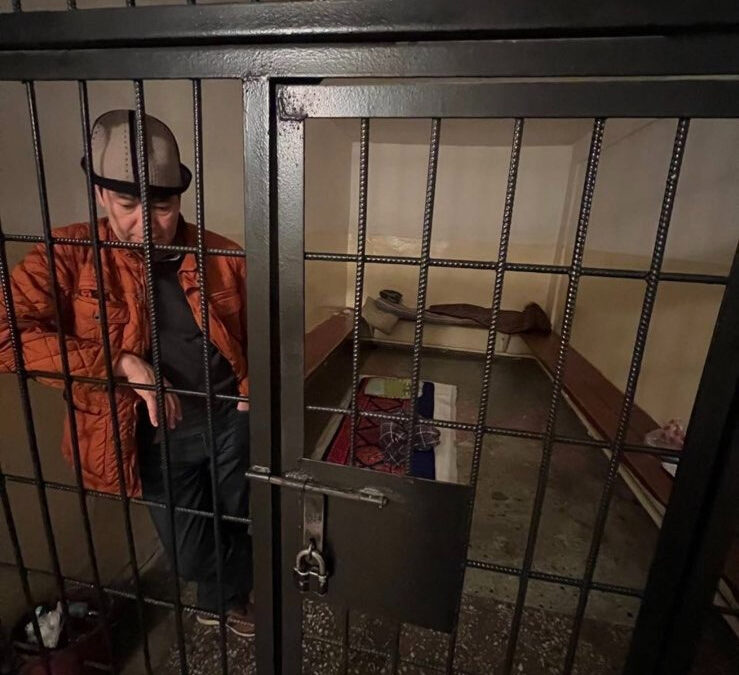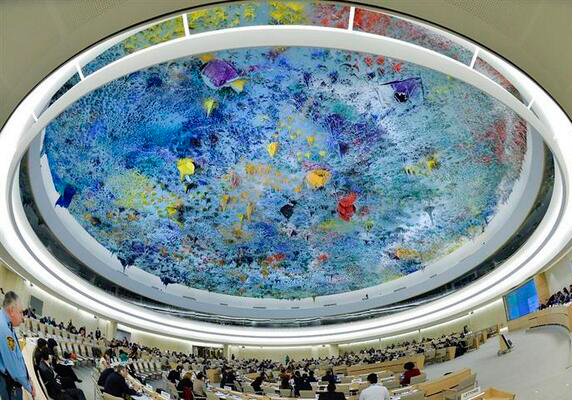
Kyrgyz Republic: lawyer Nurbek Toktakunov’s arrest and detention for expressing his views on justice issues must not stand
Today, the ICJ condemned the arrest and five-day detention of Nurbek Toktakunov, a prominent Kyrgyzstan lawyer, for the administrative offence of “hooliganism”. The detention appears to have been based solely on his exercise of his right to freedom of expression, in particular on comments he made criticizing the justice system of Kyrgyzstan and is therefore unsustainable.
Nurbek Toktakunov’s arrest and detention for exercise of his freedom of expression, constitute violations of article 9 (freedom from arbitrary detention), 14 (the right to fair trial) and 19 (freedom of expression) of the International Covenant on Civil and Political Rights (ICCPR), to which Kyrgyzstan is a party. The action against Nurbek Tortakunaov also contravenes international standards on the role of lawyers.
“We are concerned that Nurbek Toktakunov’s arrest and detention resulted from the expression of his personal opinions on the problems of the functioning of the justice system in Kyrgyzstan, including in regard to the ban on rallies, which are matters of public importance for the society”, said Temur Shakirov, ICJ Senior Legal Adviser. “The lawyer’s comments were not made in court and were made outside of any legal proceedings, and in that context lawyers, like any other person, have the right to express their views, including those which are critical”
The ICJ also calls on the authorities to ensure that lawyers are able to perform all of their professional functions without intimidation, hindrance, harassment or improper interference, and to exercise their freedom of peaceful assembly and freedom of expression, as required by the ICCPR and reflected in the UN Basic Principles on the Role of Lawyers.
On 24 March 2022, Nurbek Toktakunov was sentenced to five days’ detention by the Pervomaisky District Court for the administrative offence of petty hooliganism, which was allegedly committed by “insulting all the judges of the country” in a public place. He made his comments during a rally against the Russian invasion of Ukraine near the Russian Embassy in Bishkek. Nurbek Toktakunov said that the court decision to ban rallies near the diplomatic mission building was unconstitutional. He reportedly characterized judges in Kyrgyzstan as being “no one”. Nurbek Toktakunov was released on 30 March.
Earlier, the Pervomaisky District Court of Bishkek restricted the holding of peace demonstrations at the Russian Embassy, Ala-Too Square, the Parliament and Presidential Administration. The ban is in effect from March 11 to April 11 (inclusive). The ICJ is concerned that the ban, which was not publicly announced when it was made, appears to be in violation of article 21 of the ICCPR which protects the right to peaceful assembly. Under international law, any restrictions on assemblies in and around such places must be specifically justified and narrowly circumscribed.
Three other activists, Aziza Abdirasulova, Dinara Oshurahunova and Ondyrysh Toktonasyrov, were fined 3000 soms after the banned rally, for disobeying the demands of police officers who called on leave the rally. Nurbek Toktakunov claimed that he was their legal representative at the rally. He denied using obscene language and referred to his other critical statements.
The right to freedom of expression is protected under article 19 of the ICCPR. The UN Human Rights Committee has emphasized that in respect of public debate regarding public institutions “the value placed by the Covenant upon uninhibited expression is particularly high in the circumstances of public debate concerning figures in the public and political domain.”
The ICJ stresses that according to the UN Basic Principles on the Role of Lawyers, “[l]awyers like other citizens are entitled to freedom of expression, belief, association and assembly. In particular, they shall have the right to take part in public discussion of matters concerning the law, the administration of justice and the promotion and protection of human rights […]” (Principle 23).
Additional information
The UN Human Rights Committee’s General Comment No. 37 on the right of peaceful assembly (Article 21 ICCPR) states that:
“36. While the right of peaceful assembly may in certain cases be limited, the onus is on the authorities to justify any restrictions. Authorities must be able to show that any restrictions meet the requirement of legality, and are also both necessary for and proportionate to at least one of the permissible grounds for restrictions enumerated in article 21, as discussed below. Where this onus is not met, article 21 is violated. The imposition of any restrictions should be guided by the objective of facilitating the right, rather than seeking unnecessary and disproportionate limitations on it. […]
56. The designation of the perimeters of places such as courts, parliaments, sites of historical significance or other official buildings as areas where assemblies may not take place should generally be avoided, inter alia, because these are public spaces. Any restrictions on assemblies in and around such places must be specifically justified and narrowly circumscribed”
The UN Human Rights Committee’s General Comment No 34 on the right of freedom of opinion and expression (Article 19 ICCPR) states that:
“23. States parties should put in place effective measures to protect against attacks aimed at silencing those exercising their right to freedom of expression. Paragraph 3 may never be invoked as a justification for the muzzling of any advocacy of multi-party democracy, democratic tenets and human rights. Nor, under any circumstance, can an attack on a person, because of the exercise of his or her freedom of opinion or expression, including such forms of attack as arbitrary arrest, torture, threats to life and killing, be compatible with article 19. Journalists are frequently subjected to such threats, intimidation and attacks because of their activities. So too are persons who engage in the gathering and analysis of information on the human rights situation and who publish human rights-related reports, including judges and lawyers. All such attacks should be vigorously investigated in a timely fashion, and the perpetrators prosecuted, and the victims, or, in the case of killings, their representatives, be in receipt of appropriate forms of redress.”
Donwload this webstory in Russian








